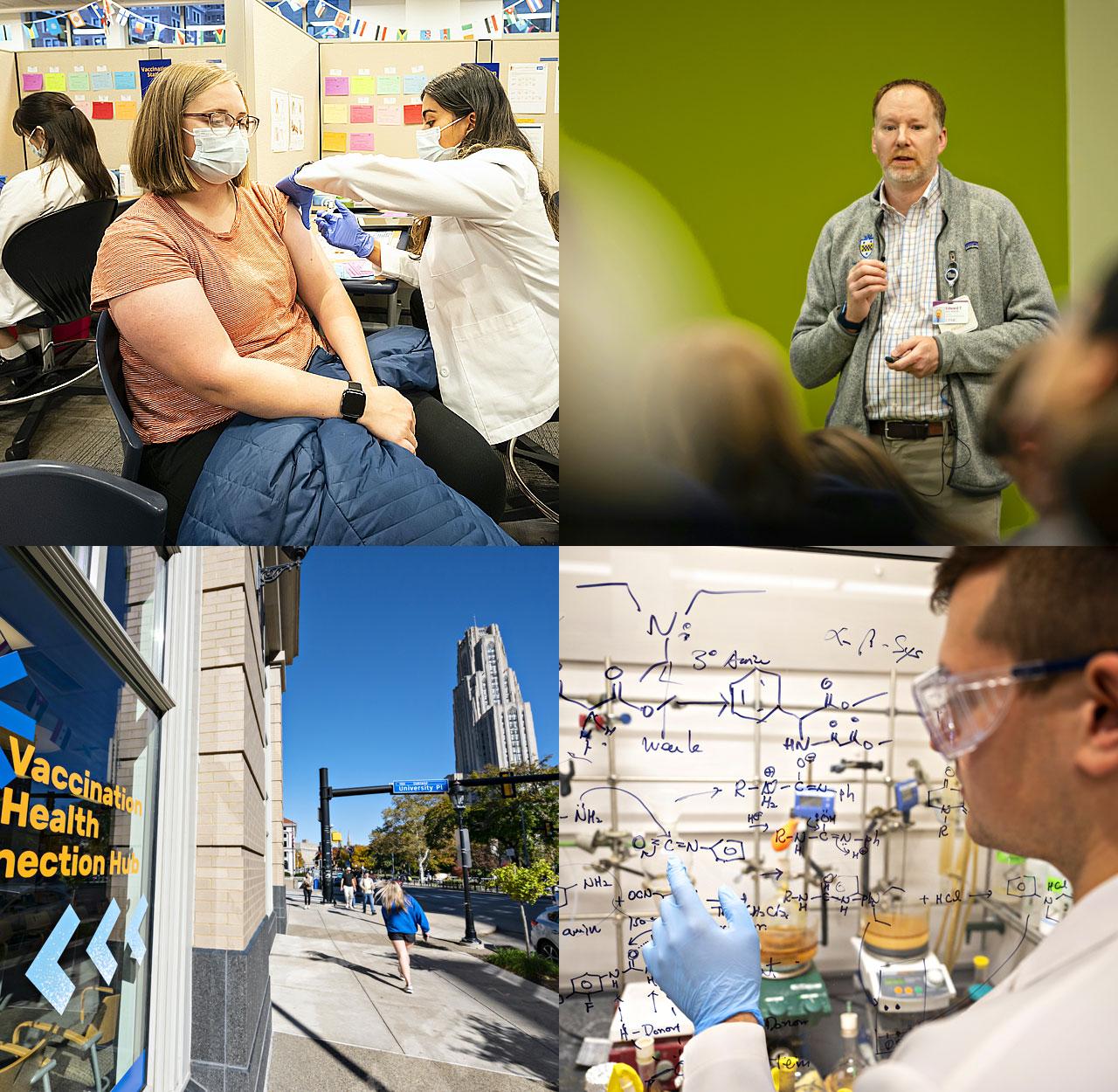University of Pittsburgh School of Pharmacy
Online MS degree in
PharmacoAnalytics
Pitt Pharmacy is leading the way in developing innovators, making discoveries, and solving complex medication-based problems of today and tomorrow. Discover how you can lead the way with our MS in PharmacoAnalytics – Pharmaceutical Outcomes Research (PA-POR) Online Program.
Interested in Applying?
Tell us a little more about yourself and a recruitment specialist will be in touch!
A Rapidly Changing World Requires Dynamic Ideas
The University of Pittsburgh School of Pharmacy is offering an online, competency-based, graduate program in PharmacoAnalytics and pharmaceutical outcomes research. This program provides students with tools and skills necessary to analyze large, healthcare datasets and apply data analytic and pharmacoepidemiology concepts to enhance pharmaceutical use and outcomes. A key feature of this program is competency-based learning, which requires students to demonstrate application of didactic learning through hands-on analysis of real-world data and evidence. Students will develop core competencies related to study design, data collection, data management, data organization, data analysis, and data visualization/communication. Completion of this program will equip students to assume employment and leadership positions related to pharmacoanalytic and pharmaceutical outcomes within various healthcare sectors such as the pharmaceutical industry, health insurance companies, governmental agencies, and other healthcare and data organizations.

Program Features
- Highly flexible and self-paced
- 100% online
- Hybrid of synchronous and asynchronous content
- 7-week and 14-week courses
- Thesis and non-thesis option
Eligibility
Applicants should hold at minimum a bachelor’s degree.
Healthcare professionals are highly encouraged to apply.
Program Faculty

Richard Boyce, PhD
Associate Professor
Department of Biomedical Informatics
School of Pharmacy
rdb20@pitt.edu
Read more about Richard

Carlo J. Iasella,
PharmD, MPH, BCPS
Assistant Professor
Dept. of Pharmacy and Therapeutics
School of Pharmacy
carlo.iasella@pitt.edu
Read more about Carlo

Sandra Kane-Gill,
PharmD, MSc, FCCM, FCCP
Interim Chair and Professor
Dept. of Pharmacy and Therapeutics
School of Pharmacy
Kane-gill@pitt.edu
Read more about Sandra

Terri Victoria Newman,
PharmD, MS
Assistant Professor
Dept. of Pharmacy and Therapeutics
School of Pharmacy
Tvn6@pitt.edu
Read more about Terri

Pamela Smithburger, PharmD, MS, BCPS, BCCCP, FCCP, FCCM
Associate Professor
School of Pharmacy
smithburgerpl@upmc.edu
Read more about Pamela

Kangho Suh, PharmD, PhD
Assistant Professor
Dept. of Pharmacy and Therapeutics
School of Pharmacy
Kas551@pitt.edu
Read more about Kangho

LiRong Wang, PhD
Assistant Professor
Dept. of Pharmaceutical Sciences
School of Pharmacy
liw30@pitt.edu
Read more about LiRong
Application Process
To apply please submit a letter of intent, CV, transcripts, and 3 letters of recommendation online at the Pharmacy College Application Service for Graduate Programs (PharmGrad) website.
Additional details can be found at: https://www.pharmacy.pitt.edu/programs/grad/application.php.
Job Opportunities
Graduates of this program will be highly competitive for roles in various healthcare sectors, including:
- Pharmaceutical industry
- U.S. Food and Drug Administration (FDA)
- Pharmacy ownership/management
- Data analytics and research positions within the healthcare industry
- PhD programs or research fellowships

FAQs
Will any of my PharmD classes satisfy requirements for the MS?
Yes: up to 6 credits taken in your PharmD can count toward your MS.
When should I apply for the MS degree?
Applications can be submitted any time between now and January 4.
If I join the MS program, will I have an advisor?
Yes: if you join the MS program, you will work with a faculty advisor and our director for graduate students.
How many credits is a MS degree?
- Pharmaceutical Sciences and PharmacoAnalytics in Pharmacy Outcomes Research: 30 credits – program starts in fall term
- MPBA: 33 credits – program starts in spring term
Is the online format synchronous or asynchronous?
For each program, it is largely self-paced, but there are synchronous touch points and faculty are available to answer questions by email or other methods.
Want more info? Contact us.
Lori M. Altenbaugh
Graduate Program Coordinator
University of Pittsburgh
School of Pharmacy
E-Mail
